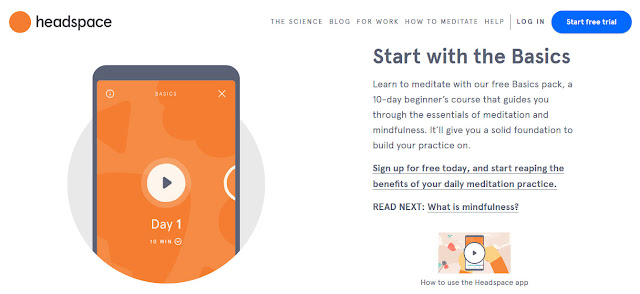Meditation is a practice that's been around for thousands and thousands of years, yet there is still a huge misconception about what it really is.
Most people like to associate meditation with a monk sitting on top of a mountain cross leg staring into the horizon but in reality, it is actually something that everyone can do and everyone can benefit from. There's even been hundreds of studies that prove this. Here's some of the benefits:
INCREASES:
- POSITIVE EMOTIONS
- COMPASSION
- IMMUNE FUNCTION
- CONTROL OVER EMOTIONS
- ABILITY TO FOCUS
DECREASES:
- ANXIETY
- STRESS
- PAIN
- FEELING OF LONELINESS
- DEPRESSION
To understand what meditation really is we have to look at our own lives first. There's something that we're doing every single day for the majority of the day, we're thinking, we're always thinking. Best-selling author Eckhart Tolle even goes as far to say that humans are addicted to thinking. He quotes,"Thinking is compulsive: you can't stop, or so it seems. It is also addictive: you don't even want to stop, at least not until the suffering generated by the continuous mental noise becomes unbearable."Try to stop thinking right now for just 10 seconds……….
Chances are unless you've been practicing meditation for a while, you had at least a couple of thoughts pop into your mind during this brief period of time. You might say well thinking isn't a bad thing, it's good we need to think in order to survive, Don't we? Well that's true but only to some extent. If you really sit down and take a look at it, the large majority of your thinking isn't as useful as you think it is. A lot of it is actually quite negative. just to prove a point, I took the privilege and sat down with a pen and paper for five minutes and recorded as many of my thoughts that I could. I had a total of a whopping two thoughts that I were considered to be either positive or constructive while on the other hand I had a total of eleven thoughts that I would consider to be negative and not constructive at all. They also have a direct correlation with how you feel.
For example, let's say that you're at a party and the following dot pops into your mind. What am I doing for my hands? I should be talking to people. Am I being awkward and all of a sudden, you're feeling anxious? Another example let's say that you're on the train and somebody steps on your shoe by accident. You start thinking he didn't say sorry. How dare he? what an asshole and all of a sudden, you're feeling angry. So, we know that we think a lot and we also know that most of our thoughts are either negative or not constructive and finally we know that our dots can affect how we feel. So, you can see how we came to the conclusion that thinking too much might just make you feel crappy sometimes. Now what does thinking have to do with meditation?
Well there's hundreds of different ways that you can meditate, there is breathing meditation, there is mantra meditation, there's guided meditation just to name a few but all of them do one thing in common, they teach us how to slow down the amount of thoughts entering our mind as well as the speed over which thoughts enter our mind and with practice you can even reach points where you have no thoughts for short periods of time and this is why meditation has so many benefit. When you think less you become more in control of your emotions, when you practice meditation you're basically teaching your mind how to turn off your dots like a switch so the next time somebody steps on your shoe and you start thinking how rude, you can just turn it off. You can control whether or not you want to get mad, on top of that when you think less you start spending less time in your head and more time outside and you start noticing things; trees are brighter, the birds are beautiful, you'll notice flowers on the floor, you'll become less involved with your thoughts and more involved with the real world and that is the beauty of meditation.
All of the information, I'm giving you today is taken from a book that is recommended by just about every meditation forum on the internet - mindfulness in plain
English.
Technically, you can meditate anywhere you'd like because it is an exercise for the mind. you can meditate sitting in a chair, sitting on the floor and even lying in bed however there is an optimal way to meditate. It's best to avoid meditating in bed because you tend to fall asleep. meditating on the floor with your back straight up is actually considered to be the most formal and beneficial way to meditate and this is because it keeps you wide awake and allows you to sit for long periods of time.
English.
Where should I meditate?
What do I do with my body?
How long should I meditate for?
of time, you can increase the time. most people recommend meditate between 10 to 20 minutes.
What to do during meditation?
How often should I meditate?
In order to really start seeing the benefits of meditation, you should meditate on a daily basis. My routine is ten minutes a day every single day when I wake up. some people like to do it twice a day like Arnold Schwarzenegger who does it 20 minutes a day when he wakes up and 20 minutes right before he goes to bed. as long as you make it into a daily habit that is the most important factor.When will I start seeing the benefits?
well first of all you have to be doing it on a daily basis. the length of each session also plays a part on how fast you see the benefits but ultimately, it's hard to say because it really does differ from person to person. certain people are less mindful in general, due to the way they were brought up so it'll take them a little bit longer to start seeing the benefits and my personal experience it took me about a month of meditating every single day before I noticed any benefit myself. I found myself in a better mood overall and was less likely to get consumed by certain negative emotions as I continued the practice I noticed more and more benefits along the line and that's it guys meditation is very simple it's just the act of making it into a daily habit that is hard.BEST 5 MEDITATION APPS
Here are the best meditation apps with some great features that I found five best meditation apps.
Sattva brings ancient indian meditations based on vedic principles. sattva has 100 plus guided meditations sacred sounds and music tracks to meditate. the app lets you set goals and achieve them.
4. BUDDHIFY
It aims to bring calm clarity and kindness in your life. this is an excellent meditation app to reduce stress and anxiety. you can use the app for guided meditations.
3. THE MINDFULNESS APP
The Mindfulness is one of the best meditation apps that comes with professional guided meditations. you can use this app to learn and practice meditation. there are guided and silent meditations from 3 to 30 minutes.
Headspace is also a good meditation app to help focus more stress less and get better sleep the app teaches you how to perform meditation. the team behind the app claims that the app is basically a gym membership for the mind.
Calm come as one of the best meditation apps you can try to keep your mind calm, relieve your stress and get better sleep. this app includes several programs for meditation. it has meditation sessions from three minutes to 25 minutes.












Comments
Post a Comment